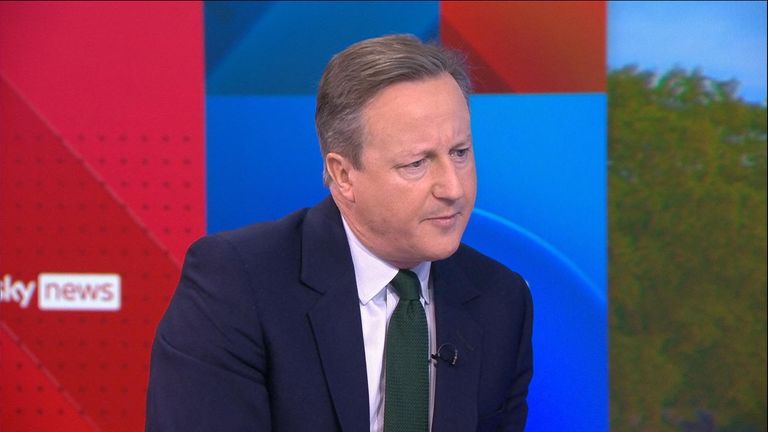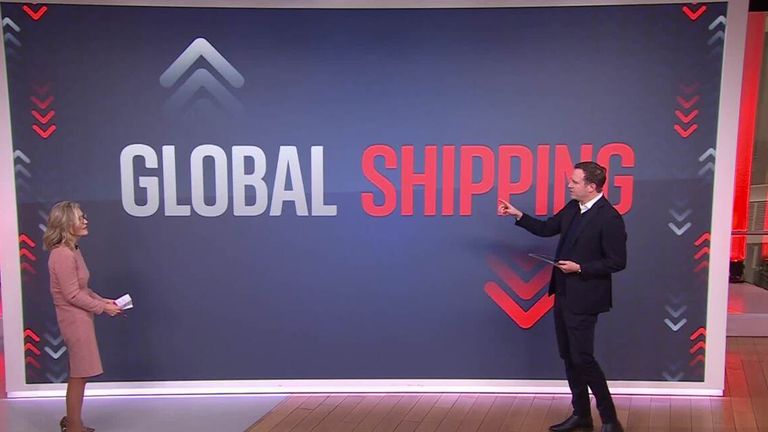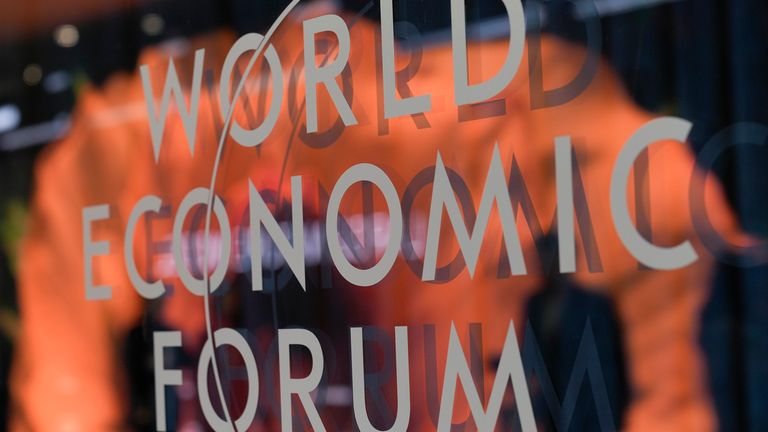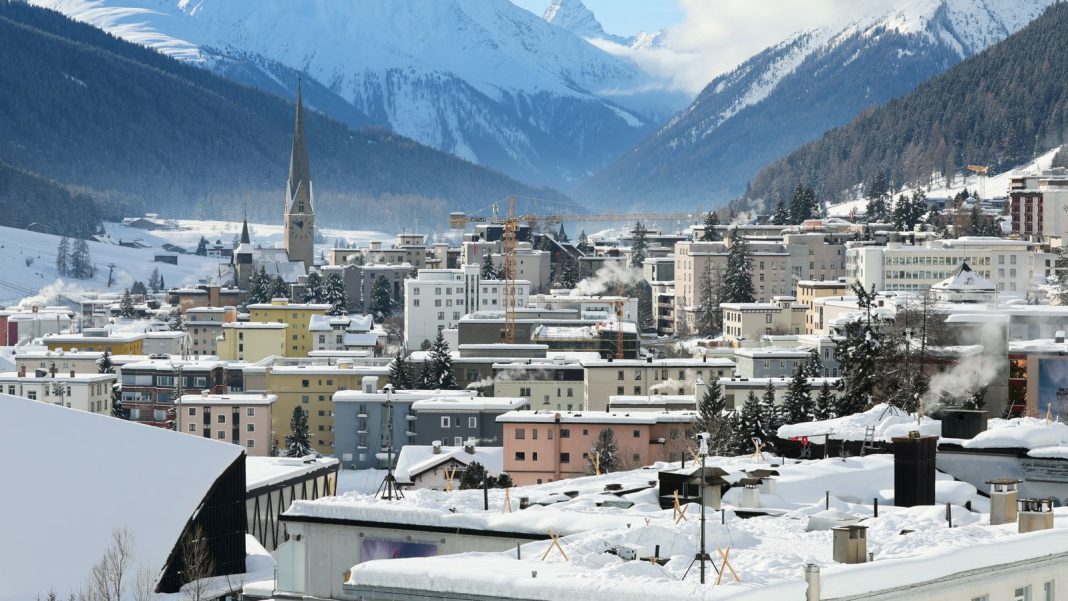This year’s World Economic Forum wasn’t supposed to be about the events in the Red Sea.
When the conveners came to put it together – the 2024 edition of the annual shindig at Davos where plutocrats mingle with politicians and celebrities in the Swiss mountain village – they had plenty of other big issues on the menu.
The highlight of the opening day was supposed to be the appearance of Ukrainian President Volodymyr Zelenskyy.
There is session after session about artificial intelligence and the energy transition.
Yet, as is so often the case, the main talking point here on the “Magic Mountain” was something else entirely.
Swiss President Viola Amherd and her Ukrainian counterpart Volodymyr Zelenskyy
In this case, as the rich and famous come to discuss the state of the world, there are fretful noises about what’s happening in the shipping lanes of the Red Sea.
And you can see why.
Davos is, in some senses, the ultimate emblem of globalisation.
Here are thousands of delegates whose lives and livelihoods depend on the free movement of goods and capital around the world.
Yet in recent years, they have had to contend not merely with war in Europe and hideous attacks in the Middle East, but a fraying of the very global order they stand for.
The attacks on shipping in the Red Sea are only the start of it.
Please use Chrome browser for a more accessible video player

0:59
‘Lights are flashing red on global dashboard’
Read more:
Are shipping attacks by Houthis having impact on prices?
US shoots down missile fired at navy destroyer from Houthi areas
World leaders have forsworn the free trade, non-interventionist policies that dominated in most of the WEF’s lifetime.
The US has committed to vast subsidies to shore up its energy sector; Europe is pledging to do something similar; even the UK is experimenting with industrial strategy.
This content is provided by Spreaker, which may be using cookies and other technologies.
To show you this content, we need your permission to use cookies.
You can use the buttons below to amend your preferences to enable Spreaker cookies or to allow those cookies just once.
You can change your settings at any time via the Privacy Options.
Unfortunately we have been unable to verify if you have consented to Spreaker cookies.
To view this content you can use the button below to allow Spreaker cookies for this session only.
Click to subscribe to the Sky News Daily wherever you get your podcasts
In the meantime, diplomatic and economic relations between the West and China have become more frigid, while Russia is once again persona non grata.
In short, the stability and calm which most delegates here have long hoped for has begun to evaporate away.
But the Red Sea attacks raise further questions.
Please use Chrome browser for a more accessible video player

5:17
How do shipping attacks hit shoppers?
One of the premises of globalisation is that rather than trying to make everything domestically, one should source the cheapest viable product from overseas instead.
But what if those products won’t or can’t turn up on time? What if trade becomes so dangerous that you can no longer rely on ships turning up at all?

Pic: AP
Such questions are terrifying to those here in Davos, in large part because they have been able to take free trade for granted for so long.
So while the episodes of recent weeks were not scheduled to play a major role in the panels and speeches this week, there’s every chance they may intrude.
Yet, Davos is about more than one topic. It is a place where businesspeople come to meet and to do deals.
It’s a place where campaigners come to try to attract the attention of the world’s richest and most influential people.
It is a forum where politicians come in an effort to be taken seriously – it’s not for nothing that both the UK government (via Jeremy Hunt and Lord Cameron) and the Labour Party (via Rachel Reeves and Jonathan Reynolds) are here in force.
It is a carnival of capitalism, in all its garish, complex, colours on display.







